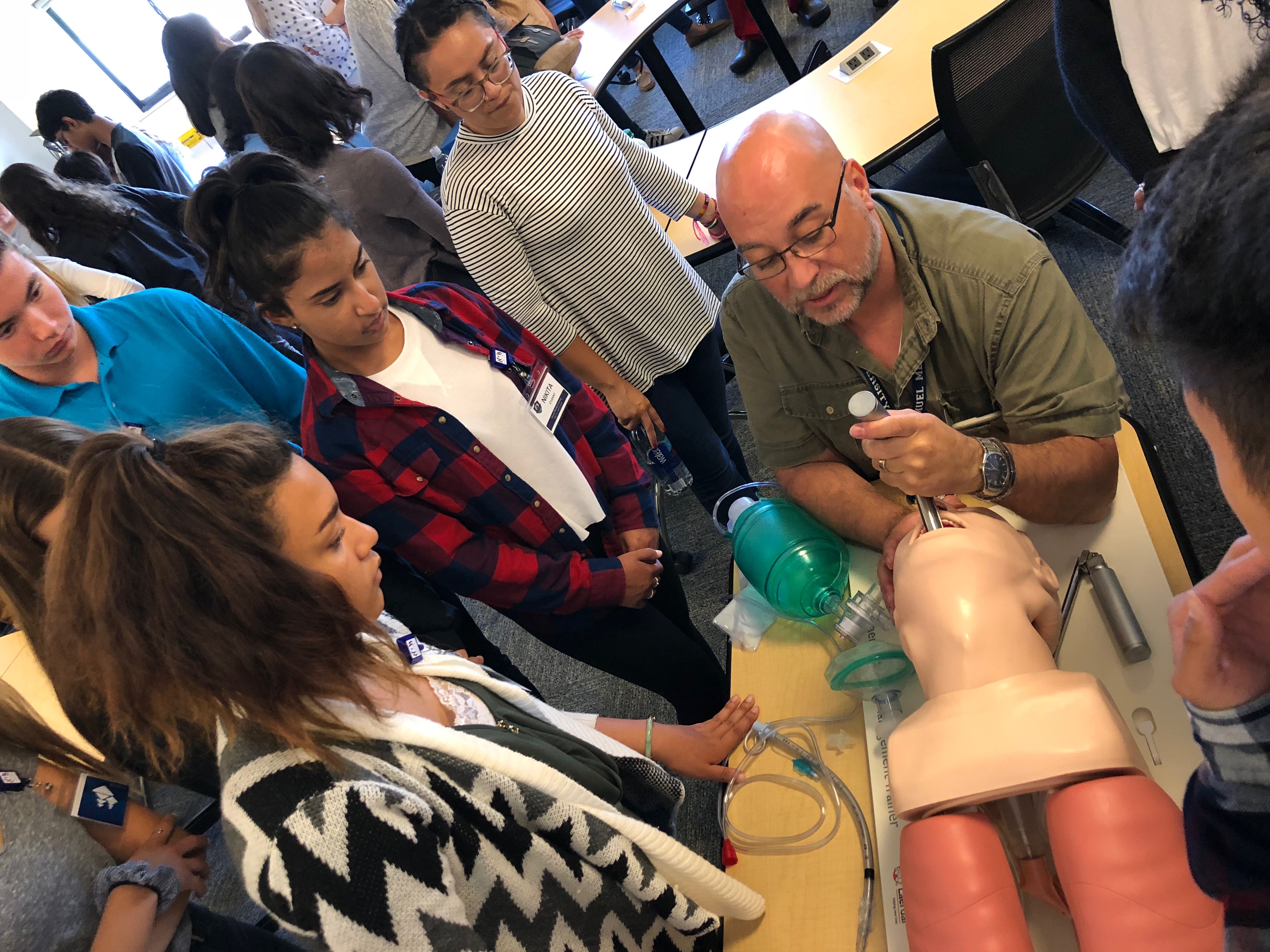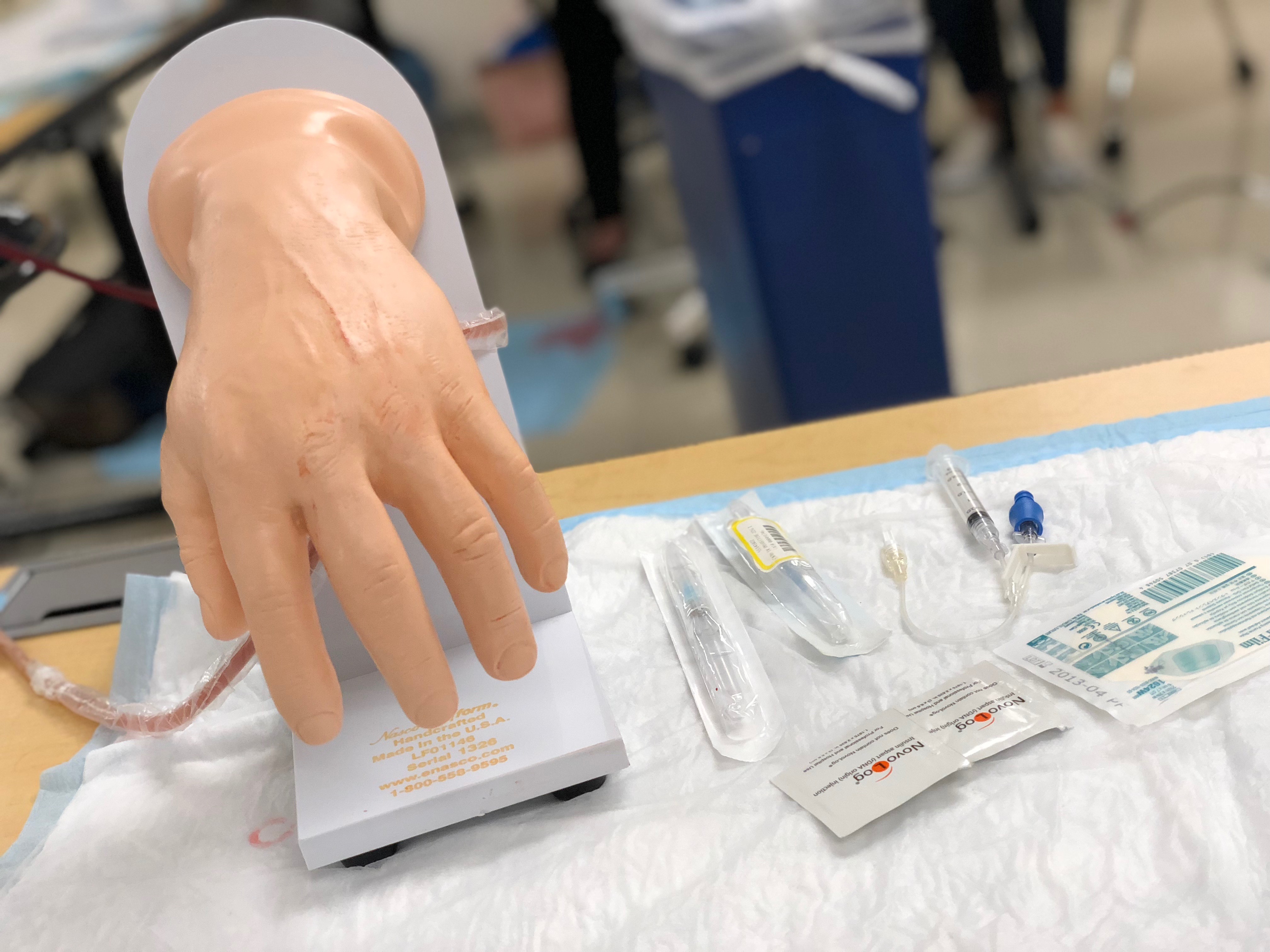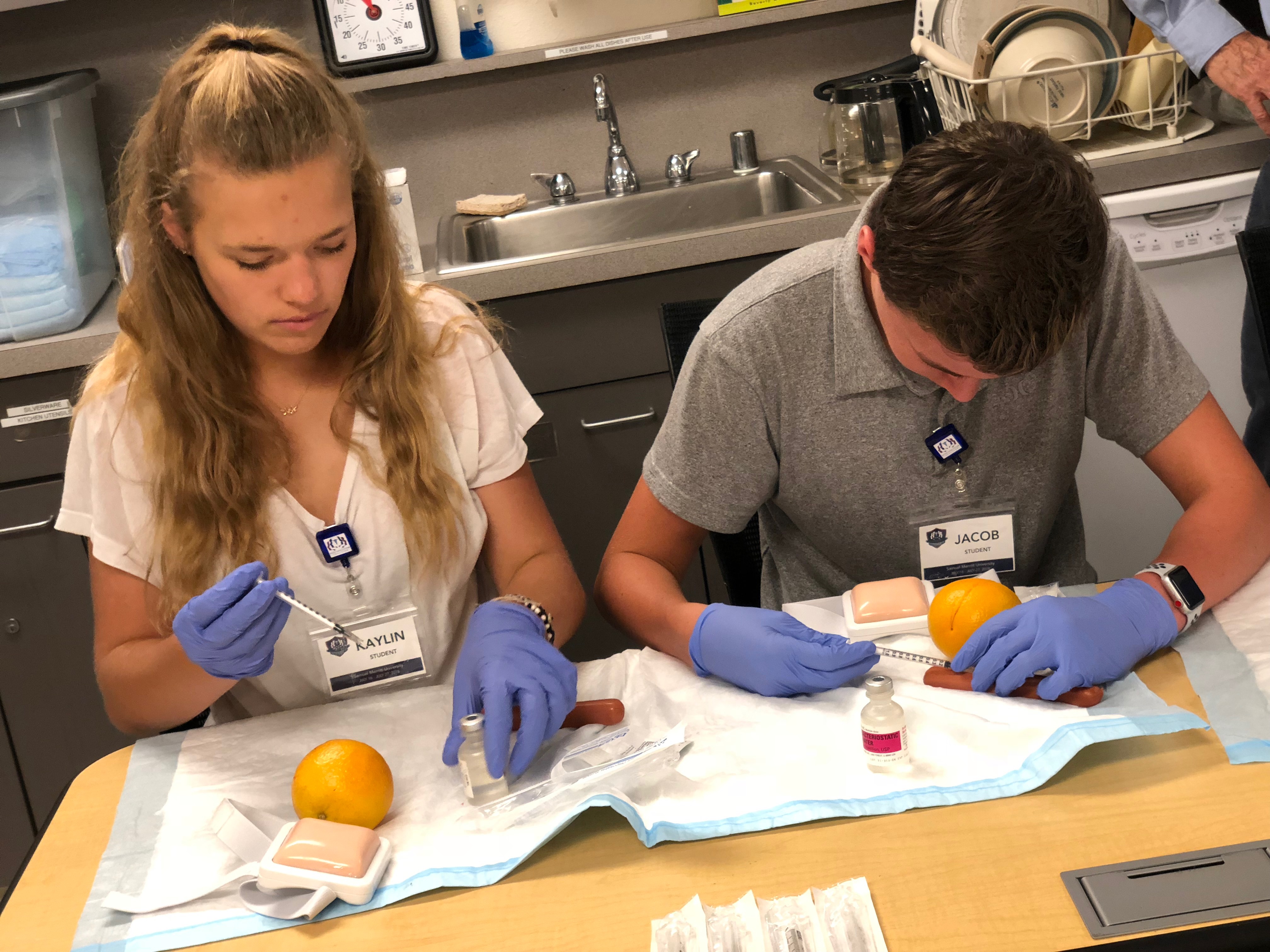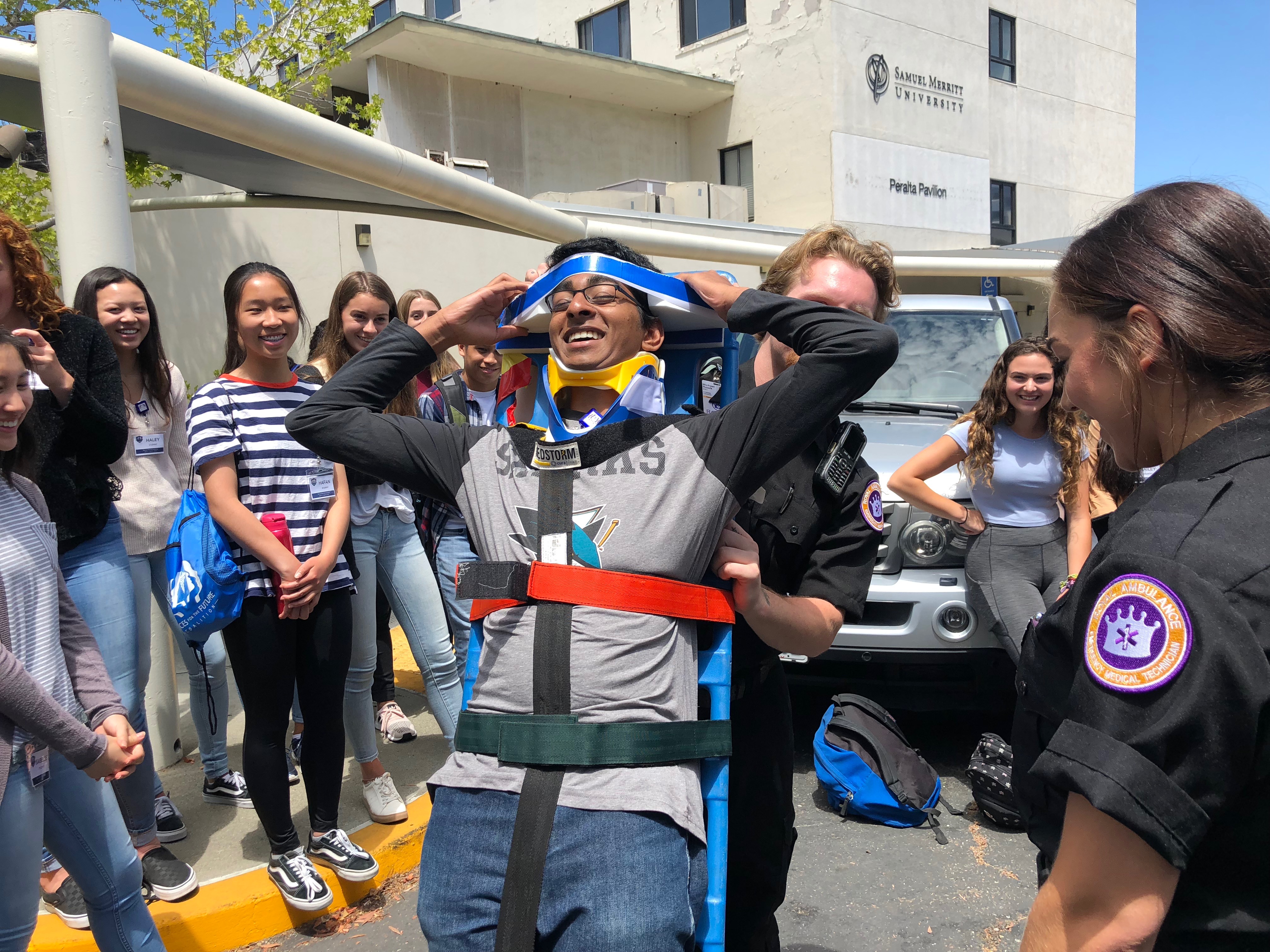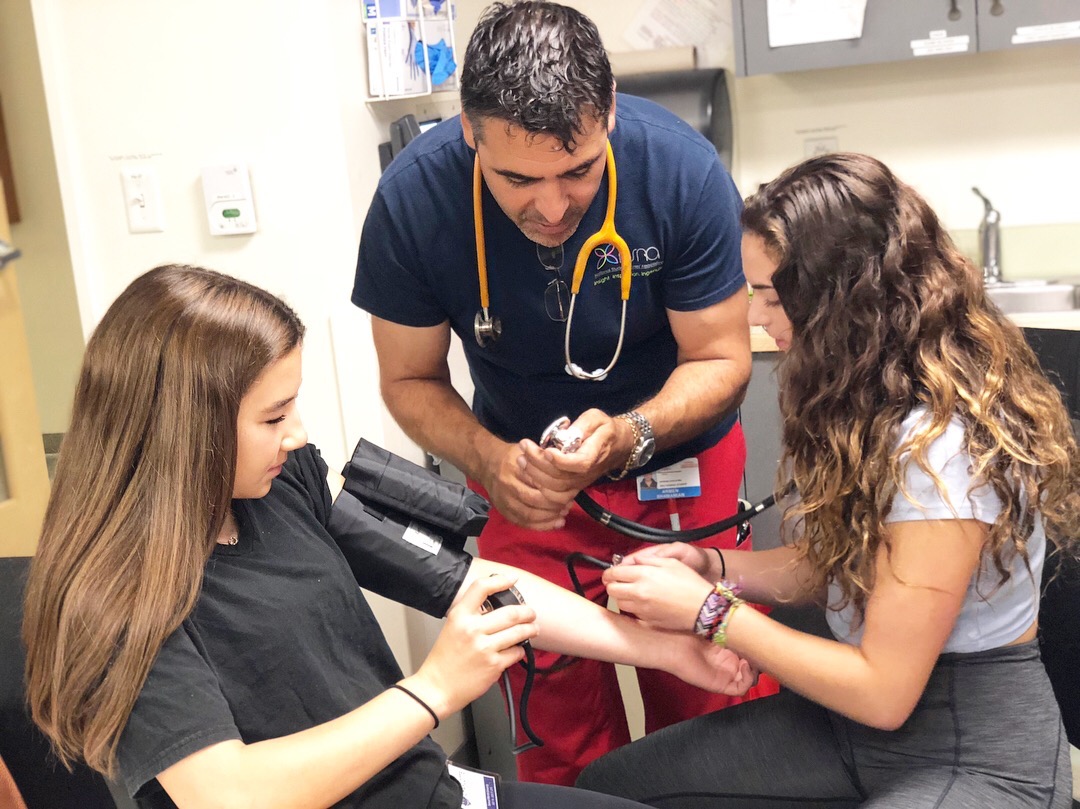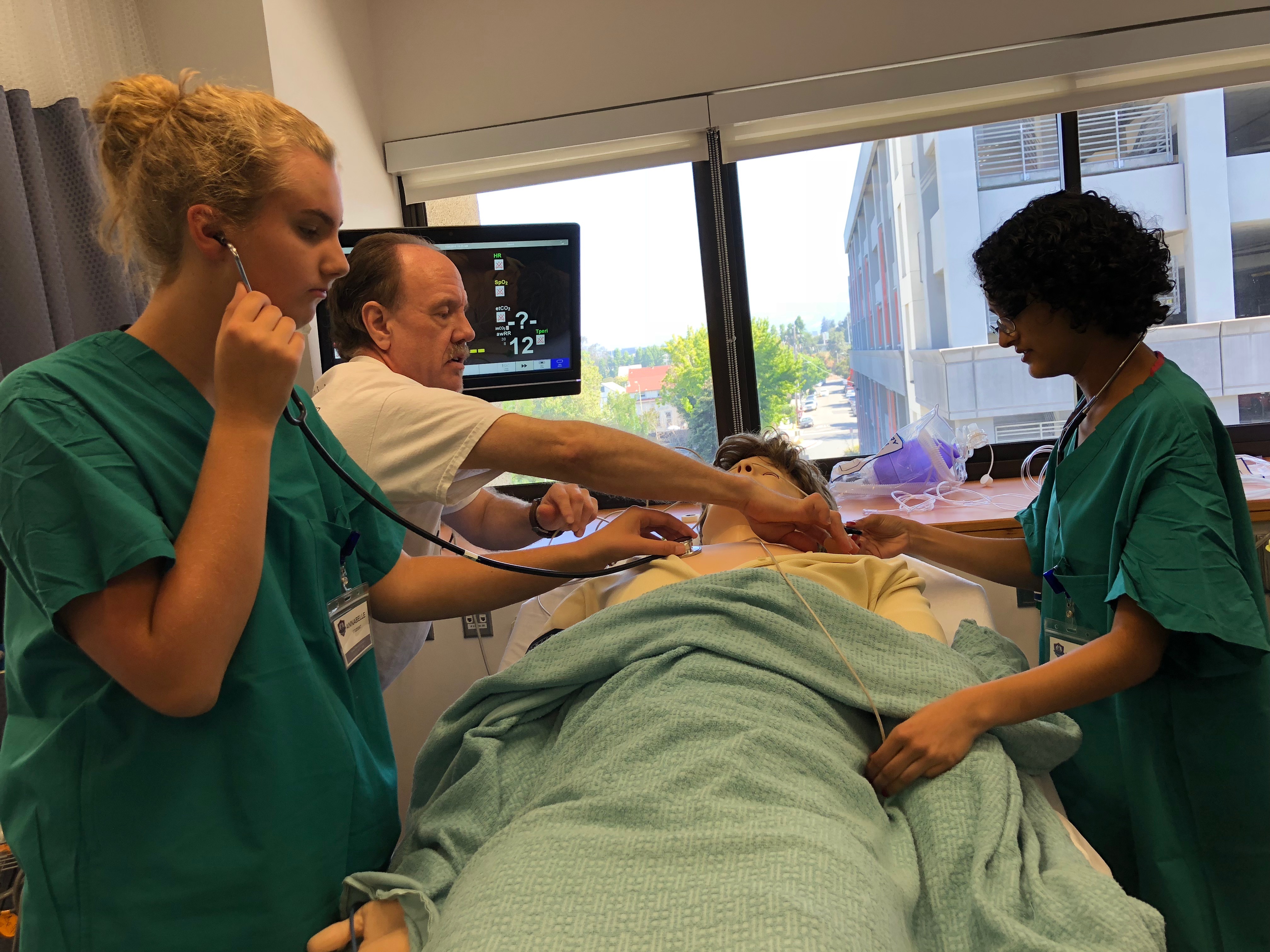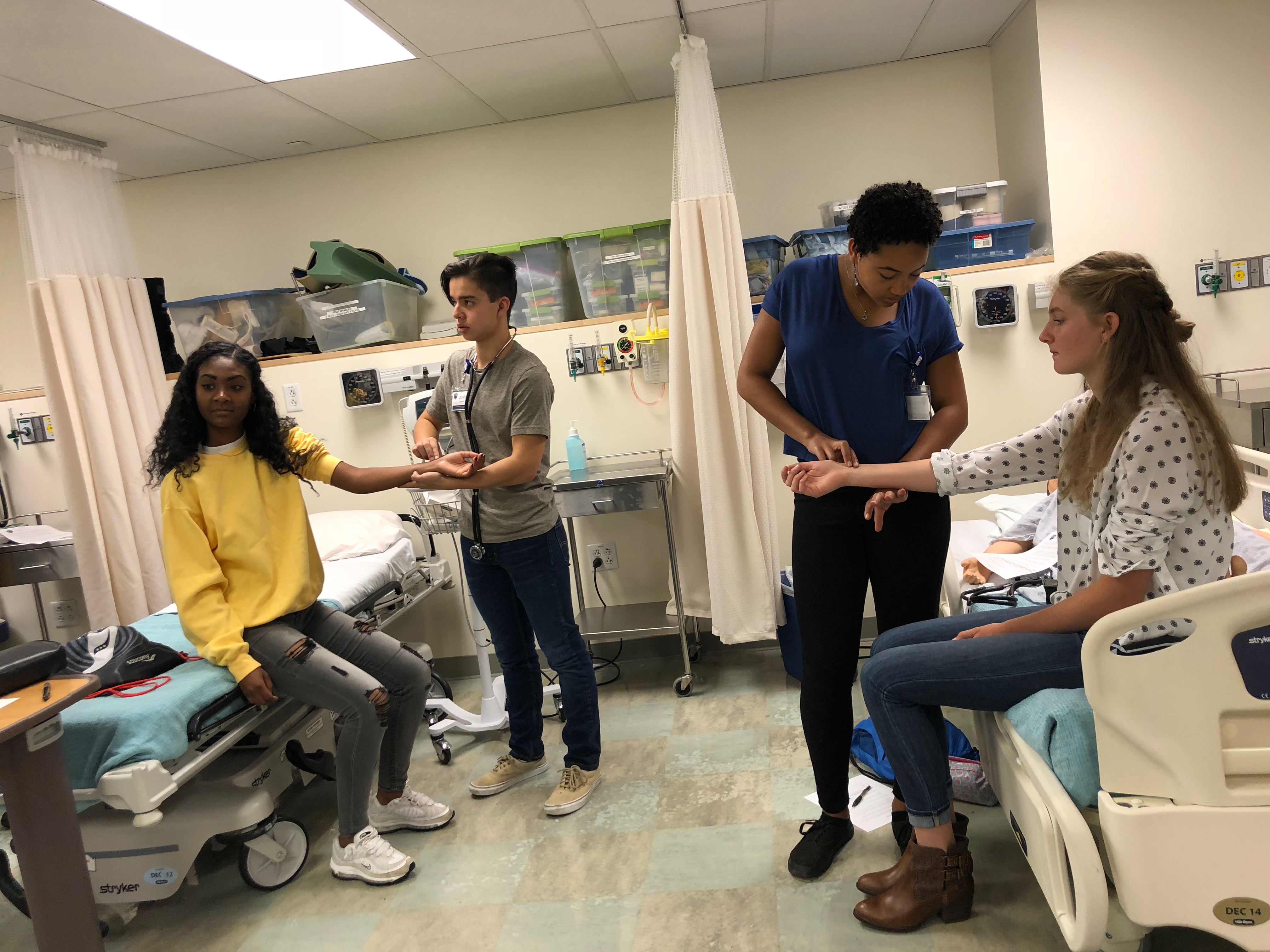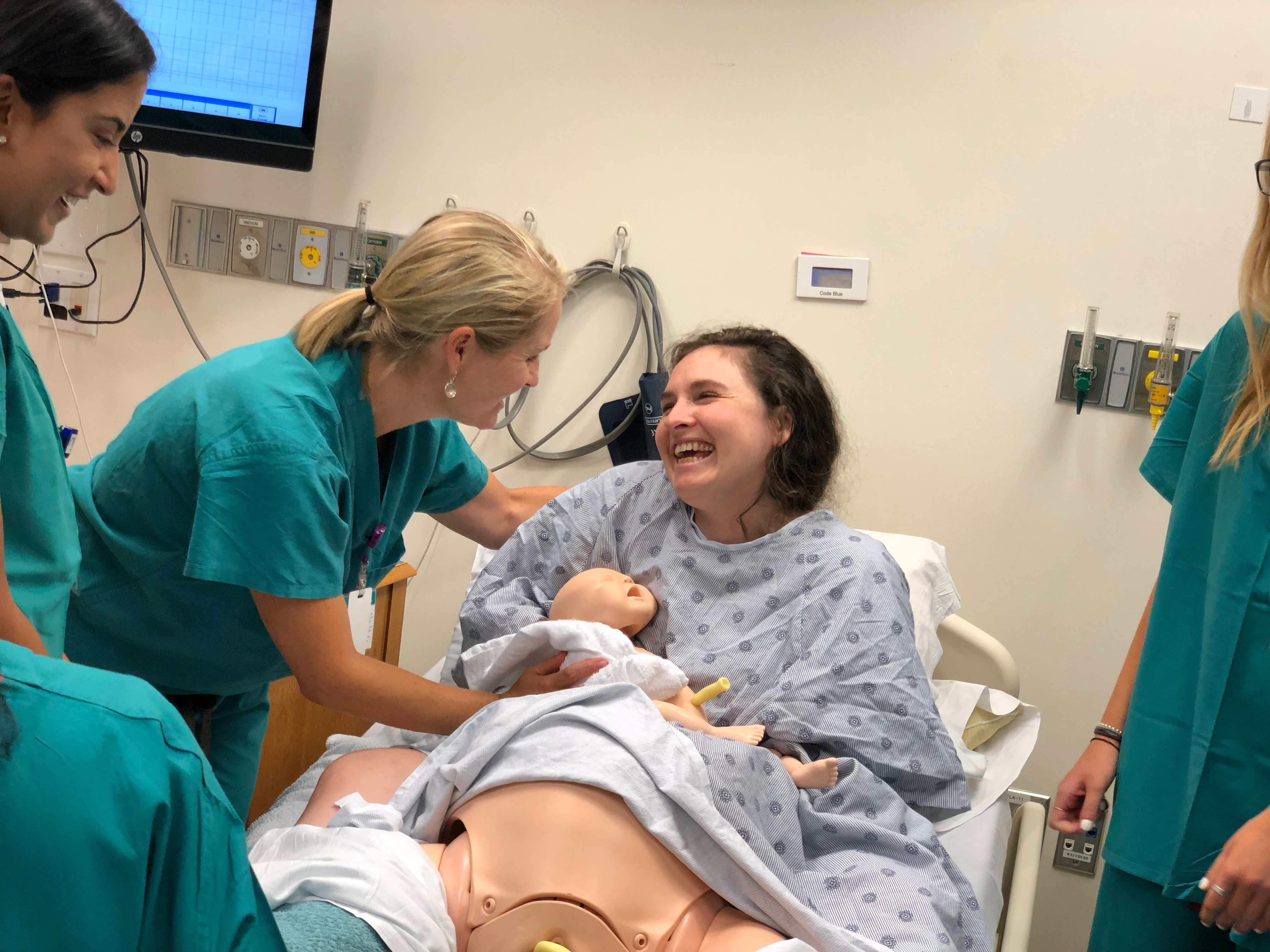SAMUEL MERRITT UNIVERSITY
JULY 16 - 27, 2018The FACES Summer Medical Academy (FSMA) was created to expose high school students to the field of medicine, nursing, and allied professions. This year’s Academy was a huge success! High school students were able to take part in this one of a kind summer enrichment experience.
In partnership with Samuel Merritt University, FACES for the Future Coalition hosted 45 scholars from July 16 - 27, 2018 to provide a unique lens for high students to explore the health care field. The main takeaways we heard from our students were:
In our first week, students were mentored by numerous health professionals and received a crash course on various clinical skills including taking vitals, immunizations, and IV placement. Some proved much harder than others – especially intubation!
“I have never looked forward to a program every single day and I’ve never talked so much to my parents about how my days go. They told me that they’ve never seen me so passionate in something I’ve ever done.”
Students had many opportunities to meet and talk to professionals from various fields in healthcare. They were able to interact with a team of emergency medical technicians and were fascinated by the high-pressure situations EMTs face every day. The students also took a field trip to the UCSF School of Medicine where they met with current medical students and learned about the long but fulfilling road to becoming a doctor. Our FSMA scholars were also introduced to nurses, doctors, physician’s assistants, pathologists, global health workers, and much more.
“I thought that this was an incredible experience to be a part of because I’ve learned so much in such a small span of 10 days and I honestly feel like I’ve gotten some very valuable skills/knowledge out of this program. Not only have I met some very inspiring people that have left me with some amazing life lessons, but I also took part in engaging, hands-on, clinical workshops.”
"UCSF is my dream school and so I really wanted to go there and see if the setting was something I liked and it made me realize that the students do relate to me."
Many of our workshops taught skills that a doctor uses in daily practice, but aren’t necessarily taught in a classic classroom setting, such as cultural competency and patient-centered care. Students role-played as doctors in very sensitive patient situations. This challenged students to check the assumptions and biases that might hinder communication and trust in a patient setting. Students commented on how this was an extremely eye-opening experience for them.
“FSMA helped me realize that healthcare workers can make mistakes and that their job isn’t all technical. It's important to have a conscience and understand your patients and where they are coming from.”
“This program not only magnified my passion for medicine, but also taught me to be a more thankful and humble person.”

